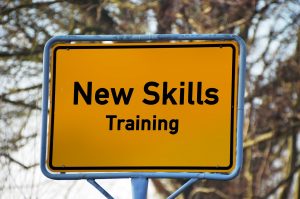Improving Listening Competence

“It’s a common delusion that you can make things better by talking about them.” Rose MacAulay
Listening competence at each stage of the listening process
Many people admit that they could stand to improve their listening skills. This section will help us do that. In this section, we will learn strategies for developing and improving competence at each stage of the listening process. We will also define active listening and the behaviors that go along with it.
We can develop competence within each stage of the listening process, as the following list indicates: (Ridge, 1993)
-
To improve listening at the receiving stage,
- prepare yourself to listen,
- discern between intentional messages and noise,
- concentrate on stimuli most relevant to your listening purpose(s) or goal(s),
- be mindful of the selection and attention process as much as possible,
- avoid interrupting someone while they are speaking in order to maintain your ability to receive stimuli and listen, and,
- pay attention so you can follow the conversational flow.
- For more on the important of paying attention and being present check out this HBR article, If you aspire to be a great leader, be present
- To improve listening at the interpreting stage,
-
- identify main points and supporting points;
- use contextual clues from the person or environment to discern additional meaning;
- be aware of how a relational, cultural, or situational context can influence meaning;
- be aware of the different meanings of silence; and
- note differences in tone of voice and other paralinguistic cues that influence meaning.
-
To improve listening at the recalling stage,
- use multiple sensory channels to decode messages and make more complete memories;
- repeat, rephrase, and reorganize information to fit your cognitive preferences; and
- use mnemonic devices as a gimmick to help with recall.
-
To improve listening at the evaluating stage,
- separate facts, inferences, and judgments;
- be familiar with and able to identify persuasive strategies and fallacies of reasoning;
- assess the credibility of the speaker and the message; and
- be aware of your own biases and how your perceptual filters can create barriers to effective listening.
-
To improve listening at the responding stage,
- reflect information to check understanding,
- ask appropriate clarifying and follow-up questions,
- give feedback that is relevant to the speaker’s purpose/motivation for speaking,
- adapt your response to the speaker and the context, and
- do not let the preparation and rehearsal of your response diminish earlier stages of listening.
Material in this chapter has been adapted from“A Primer on Communication Studies” is licensed under CC BY-NC-SA3.0

